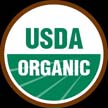Organic Coffee for Your Health and the Environment
Article by Andréanne Hamel. Andréanne helps her visitors make appropriate choices for a good cappuccino espresso machine, the best super automatic espresso machine for home use, or even stove top espresso pots that work.
 The word organic may bring many pictures to mind. Organic fruits, vegetables, and even organically fed poultry may seem like a fad. The truth is that it really isn’t; organics are quickly taking their place as the healthier choice, and they’re better for the environment to boot!
The word organic may bring many pictures to mind. Organic fruits, vegetables, and even organically fed poultry may seem like a fad. The truth is that it really isn’t; organics are quickly taking their place as the healthier choice, and they’re better for the environment to boot!
The same is true when it comes to organic coffee. As the market grows, more and more people are beginning to see real benefit in going green. It is not just for the health of the environment; it’s also for a healthier diet, and a better taste.
To gain a better understanding of what the term “Organic Coffee” really means, we have put together the following guide on how it relates to your health and that of our planet!
What Does Organic Coffee Really Mean?
Before we talk about the benefits of organics, let’s first discuss what it takes to earn the organic seal. According to the USDA to become certified a coffee farm must meet the following requirement:
No synthetic pesticides or prohibited substances used in the past three years
Have a sustainable crop rotation plan to prevent erosion and the loss of nutrients in the soil
If any pest prevention is required, the farm must have a plan to do so naturally
The coffee must pass an inspection and testing before being allowed into the country and sold as organic
Another label you often see on organic coffees is the bird-friendly label. A farmer, who has been certified as an organic grower, may apply for this label if they use natural shade when growing their crops. In other words, the beans are shaded by trees and not by screens or buildings that most coffee growers use. The bird friendly option is beginning to gain popularity amongst organic farmers.
Organic Coffee and the Environment
Obviously with the absence of chemicals, and in the case of bird-friendly coffee in a natural growing environment, there are many benefits to the planet by growing this way. There are fewer chemicals put into the soil, deforestation is reduced since the organic grower wants the shade trees, and of course that leads to less impact on the natural wildlife in the area.
Choosing to go organic is the environmentally responsible thing to do. However, it is not the only benefit.
Organic Coffee as The Healthier Choice
Along with being healthier for the planet, organics are healthier for you. The USDA has different rules for imported coffee that is certified organic, and that which isn’t. Both types are inspected for pests, disease, and other problems. If a problem is found, the coffee must either be destroyed or chemically treated, hence loosing its organic certification. Certified organic beans are never fumigated.
There are also different rules for the way the beans are processed afterwards. For example if you enjoy decaf, that regular coffee may be chemically decaffeinated with chemicals that are known to be carcinogenic. To remain organic though, a natural process must be used (Swiss water decaffeination for example).
Basically, by choosing the organic coffee, you are ingesting less chemicals. There is an absence of synthetics that grow into the beans themselves (such as fertilizers, pesticides, etc), and the coffee is chemically laden when it arrives in the country. It really isn’t just the environment that you’re taking care of by choosing organic coffees. It’s also the health of you and your family that benefits!
Check out more great coffee articles:
Coffee – Java Talk – Learn all about the history of coffee, how to taste coffee, and making coffee.
Coffee Drink Calories – How much damage can your favorite coffee drink do in additional calories added to your diet? The fancier the drink, the fancier the calories – especially when you opt for the whipped topping. An extra 200 calories a day can add up to 21 extra pounds added to your body per year!
Espresso Machines – Learn about the different Styles for Different Homes.
How To Store Coffee Beans – Coffee bean’s two greatest enemies are air and moisture. Ideally, coffee should be ground, brewed, and consumed quickly to obtain the best flavor.
How to Make the Perfect Cup of Coffee – A great dining experience deserves great coffee!
How To Use a French Press – The most popular coffee maker in Europe and Australia is the classy French Press. Also known as the plunger pot, coffee press, or press-pot. This stylish coffee maker is making in-roads in America, and coffee addicts swear by it.
How To Use A Moka Pot – A Moka Pot is an Italian steam-based stovetop espresso maker that produces a dark coffee almost as strong as that from a conventional espresso maker. Sometimes called the poor man’s espresso and also known as stove-top espresso.
Irish Coffee – It might sound like an ancient recipe, but Irish coffee was a 20th Century invention. Learn the history of this spirited coffee and how it’s made. Also check out the easy-to-make authentic recipe.
Tea – Drink to your Health – Whether it’s drunk hot or cold, did you know that tea is one of the best things you can drink?


One Response to “Organic Coffee”
beans
nice post Thanks for sharing